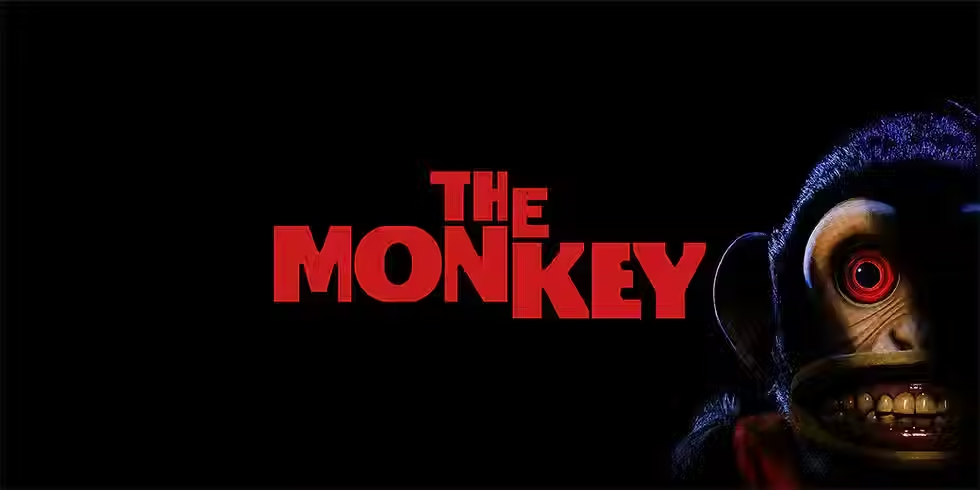The Crow (2024): A Gothic Revival That Fails to Rise
- Tavia Millward
- Dec 2, 2024
- 4 min read
Before the city skylines became battlegrounds and tragedy birthed revenge, The Crow soared as a gothic masterpiece in comics and cinema. But can some stories truly be reborn?

Let’s talk about The Crow (2024)—a reimagining of a film that wasn’t just a story but a cornerstone of gothic cinema. When you hear “The Crow,” it’s impossible not to think of Brandon Lee, his unforgettable performance, and the tragedy that made the 1994 movie a haunting tribute. The new version aims to modernise James O’Barr’s iconic comic, but here’s the pressing question: was it necessary?
O’Barr’s comic is a masterpiece born of grief. He created The Crow as a way to process the devastating loss of his fiancée, pouring his pain into a tale of love, vengeance, and anguish. The 1994 film captured that raw intensity, balancing gritty action with a brooding emotional core. The 2024 retelling, however, feels like a faint echo of what it could have been.
Bill Skarsgård steps into Eric Draven’s boots, and while his look is appropriately haunted, his portrayal lacks the raw vulnerability and simmering rage that Brandon Lee brought to the role. FKA Twigs takes on Shelly, Eric’s doomed fiancée, but their connection feels more like a distant memory than an enduring love. And the setting? Gone is the grungy, rain-soaked urban decay that made the original feel like a living nightmare. Instead, the film opts for sleekness, losing the grit that’s so central to the story.

As someone who adores The Crow, I genuinely wanted this film to succeed. Skarsgård seemed like a promising choice, and the trailers teased potential. But the final product falls short. It focuses too much on glossy visuals and action sequences, forgetting the emotional depth that defines The Crow. Instead of plunging us into a dark tale of love and loss, it offers a surface-level interpretation that never fully connects.

On a personal note, I had the privilege of working with Sharon Lee, Brandon’s sister, during Warrior seasons 2 and 3. Sharon is the epitome of grace—kind, humble, and deeply professional. She even gave me a card, which I treasure as one of my proudest moments in the industry. That connection makes this movie’s failings feel even more poignant. This isn’t just a remake; it’s a piece of the Lee family’s legacy.
Brandon Lee brought The Crow to life while dealing with his grief, mourning the loss of his father, Bruce Lee. That grief shaped his electric performance, making Eric Draven feel like a man torn apart by love and vengeance. Sharon Lee, who later faced the heartbreak of losing her brother on the set of The Crow in 1994, knows better than anyone how deeply grief is embedded in this story. The 2024 version tries to capture that darkness but misses the soul, like a ghost reaching out but never quite touching the living.

Critics haven’t been kind, and audiences seem to agree. Rotten Tomatoes has the film languishing at 22%, with audience scores not faring much better. It’s clear that nostalgia alone can’t carry a remake, especially one that fails to honour its origins.

But here’s the bigger question: should this remake have been made at all? Some stories are so deeply personal, so tied to their creators and original performers, that retelling them feels like an intrusion. O’Barr’s grief gave birth to The Crow, and Brandon Lee’s tragic death intertwined the story with his legacy.
The 2024 version tries to resurrect something that perhaps should have been left in peace. So, I’ll leave you with this: can we truly revisit tales so deeply entwined with personal and cultural history, or are some legacies best left untouched?
Behind the Scenes: Music & Soundtrack
The music of The Crow (1994) is often as celebrated as the film itself. Emerging during the height of the grunge and alternative rock era, the original soundtrack featured bands like The Cure, Nine Inch Nails, and Stone Temple Pilots—artists whose raw, emotional sound mirrored Eric Draven’s journey of vengeance and love. The dark, melodic tones were more than a backdrop; they became a character in their own right, amplifying the film’s gothic atmosphere and connecting deeply with its audience.
Fast forward to The Crow (2024), and the musical landscape is very different. While the filmmakers made an effort to curate a modern soundtrack, it leans heavily on atmospheric electronic compositions with a sprinkling of indie and experimental tracks. The intention seems to have been to craft a soundscape that feels fresh yet brooding, but it lacks the cultural resonance of the 1994 soundtrack. Whereas the original captured the zeitgeist of the grunge movement, the 2024 version struggles to find a definitive musical identity.
From a technical perspective, the decision to pivot towards electronic and ambient tones reflects current trends in film scoring. This approach relies heavily on synthesisers and layered sound design, which can evoke a sense of unease or melancholy. However, without the raw edge of live instruments or emotionally charged lyrics, the music often feels detached from the narrative. For filmmakers and composers, this highlights the challenge of balancing modernity with homage, especially when working with a film so rooted in its musical heritage.
Ultimately, while the 2024 soundtrack supports the visuals, it fails to achieve the iconic status of its predecessor. For cinephiles and students, it serves as a case study of how music can define—or dilute—a film’s identity, especially when remaking a project where the original score was pivotal to its success.

















Comments